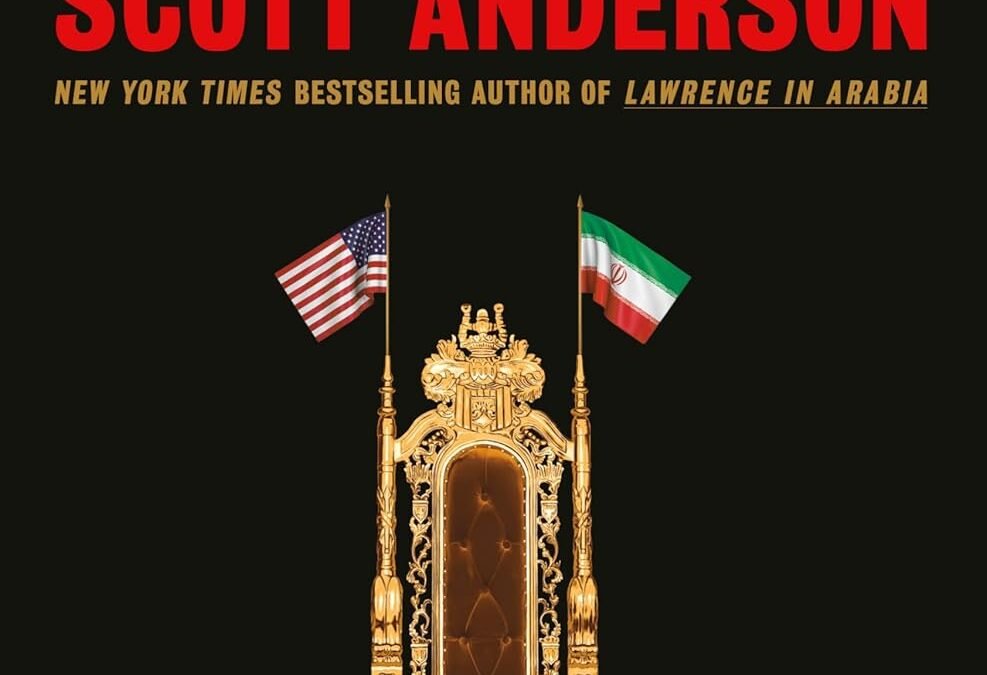
Book Review of King of Kings: The Iranian Revolution—A Story of Hubris…
Book Review: King of Kings: The Iranian Revolution—A Story of Hubris by Scott Anderson
As a lover of history, I’ve always been captivated by events that not only reshape nations but also alter the global landscape. When I heard about Scott Anderson’s King of Kings: The Iranian Revolution—A Story of Hubris, my curiosity piqued immediately. After all, how often do you come across a book that promises to intertwine the gripping narratives of power, betrayal, and the human spirit against the backdrop of one of the most transformative revolutions of the 20th century? Anderson, who previously enthralled readers with Lawrence in Arabia, has a knack for revealing the complexities of history in a way that feels both urgent and relevant.
In King of Kings, Anderson dives deep into the tapestry of the Iranian Revolution, delineating the foolhardiness of the American government and the tragic, almost Shakespearean, trajectory of Shah Mohammad Reza Pahlavi. The book begins with the ironic toast made by President Jimmy Carter during a state dinner, praising the Shah. At a time when Iran was buoyed by immense oil wealth and military power, the Shah seemed untouchable. Yet, only months later, his regime would be toppled, setting in motion a paradigm shift that would echo around the world.
What struck me most about Anderson’s narrative is his masterful portrayal of key characters. The Shah, painted as a tragic figure—a mix of Richard III and Lear—struggles with denial and indecision, ultimately facing the monumental, self-imposed collapse of his rule. Meanwhile, Ayatollah Khomeini emerges not just as a leader of a revolution but as a clever strategist who deftly navigated the turmoil to seize power. The book also highlights a diverse cast, from American diplomats and teachers to Iranian insiders, each contributing layers to this rich historical narrative.
Anderson’s writing is both engaging and lyrical, with a pace that briskly carries the reader through complex themes of hubris, betrayal, and the unpredictable power of the masses. His blending of humor and keen observation has a way of making the historical feel immediate and alive. I found myself pausing frequently to reflect on his poignant observations, particularly as he connects the Iranian Revolution’s implications to contemporary global tensions—especially the rise of religious nationalism and its aftermath.
Among his many insightful comments, one quote resonated deeply with me: “The hatred of economically-marginalized, religiously-fervent masses for a wealthy secular elite has led to violence and upheaval. Iran was the template.” This notion feels eerily relevant today and serves as a critical reminder of the cyclical nature of discontent in societies.
King of Kings is not just a historical account; it’s a clarion call. It speaks to those interested in geopolitics, international relations, and human stories of resilience and folly. Whether you’re a seasoned historian or just a curious reader, Anderson’s work offers both a revealing glimpse into the past and a stark warning for the future.
Ultimately, reading King of Kings was a transformative experience for me, expanding my understanding of a pivotal moment in history while reflecting on how the echoes of the past resonate in our present. If you find yourself drawn to powerful narratives that challenge preconceived notions and provoke thought, this book is certainly one to explore.
Discover more about King of Kings: The Iranian Revolution—A Story of Hubris… on GoodReads >>

